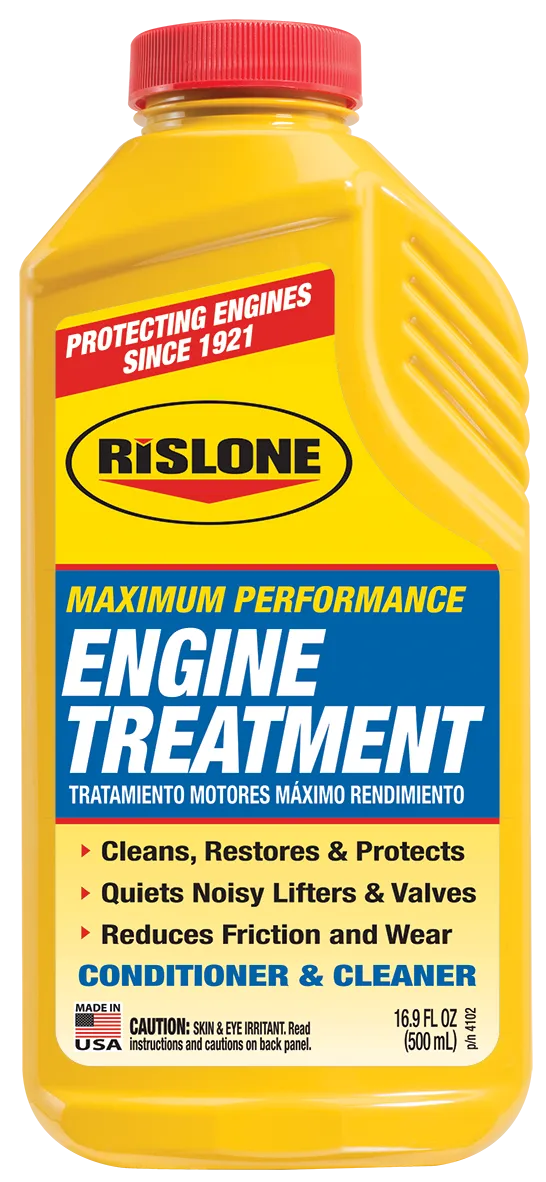Zinc (ZDDP) and Motor Oil: How Zinc Affects Your Engine
Is there zinc in your motor oil? Is there enough or too much? When looking for oil or oil additive products to add to your engine, you may wonder where zinc comes in. Here is what you need to know about zinc and motor oil.
How Do You Choose Oil for Your Car?
Before considering the issue of zinc in your motor oil, it’s important you choose the right type of motor oil, to begin with. While your mechanic or owner’s manual can tell you the correct viscosity for your particular car and engine, this doesn’t answer which type of motor oil you should choose. There are four options for you to choose from:
- This is simply refined crude oil and is the most basic type of motor oil. It’s probably the kind your grandparents used in their cars. While conventional oil is cheap, it doesn’t have some of the treatment to remove impurities that other oils have, and may not perform as well, especially in very cold or warm environments.
- Synthetic oil: This costs a little more, but it is worth it. Synthetic oil is treated to have fewer impurities and operates much better than conventional oil at extreme temperatures.
- Synthetic blend motor oil: Synthetic blend motor oil is the best of both worlds. It is treated for more impurities than conventional oil but cheaper than fully synthetic oil. If you feel you are getting sufficient performance with synthetic blend, you may want to save a few bucks rather than go full synthetic.
- High-mileage oil: Most experts recommend you use high-mileage oil if your car has more than 75,000 miles. This type of oil contains leak prevention additives, seal conditioners and other products to help extend the life of your engine. It also costs more, but if you are trying to squeeze the most life possible out of an older car, this is the type of oil you should use.
If you want to get better performance and longer life out of your car, you should put in something superior to conventional oil, especially if you do a lot of urban stop-and-go driving which can be hard on your engine. So, once you’ve chosen your oil type and the appropriate viscosity, where does zinc fit into the equation?
What Are the Effects of Zinc Paired With Your Engine Oil?
All the motor oil you put in your car has some zinc, but typically very low levels. And the zinc we’re talking about isn’t isn’t pure zinc, but a compound of either zinc dialkyldithiophosphate (ZDDP) or zinc dithiophosphate (ZDTP). If you are using mineral-based oil, ZDDP is in it, while synthetic oil, which is usually preferable, includes ZDTP.
The reason you have zinc in your motor oil is to protect the camshaft. The camshaft allows the oil to get into the engine by pushing open the engine valves as it rotates while you are driving. When you drive at high speeds, a great deal of pressure can build up between the lobes of the camshaft and the parts that press against them, called followers. At this high pressure, motor oil squeezes out and can wear down the parts. The ZDDP or ZDTP creates a coating to protect the engine from this type of wear.
Zinc (ZDDP and ZDTP) is especially useful for cars with flat-tappet camshafts, which means a lot of classic cars, hot rods and older muscle cars need zinc more than other cars. Higher zinc levels in oil typically are for performance cars on the whole.
The problem is that what’s great for your camshaft may not be so great for the combustion chamber of your engine. When some of that zinc turns to ash and travels down your exhaust pipe, it ends up in your catalytic converter, and zinc ash is not good for catalytic converters. In fact, enough zinc ash in your catalytic converter can reduce its life.
How to Utilize Zinc in Your Engine
What’s the solution? Do you use zinc in your oil or not? While you can still expect some zinc in your motor oil, today’s oil doesn’t have as much as it did in the past. The American Petroleum Institute’s rating caused the industry to systematically reduce levels of zinc in their oil since 1994. If you have a newer car, this should not be a problem.
Stock engines for new cars are designed with a lower zinc content of modern oils in mind, and you should use them without excess wear on your camshaft. However, if you are using an older car or a custom car with non-stock parts (again, classic cars, hot rods, older muscle cars), you may need greater zinc content than current oils offer. Ignoring the problem could quickly lead to a worn-out camshaft. If your camshaft is not working and you are not using oil with the manufacturer’s recommended zinc content, it could void the warranty. So, how do you resolve this problem?
Zinc Supplements for Motor Oil
Thanks to new regulations and the design of modern cars, along with the proliferation of oils made for those modern cars, you can’t find a motor oil with the amount of zinc your car requires to prevent camshaft wear. What can you do?
The solution is to add a zinc supplement to your oil. A perfect example is Rislone 3x Concentrated Engine Oil Supplement with Zinc Treatment. This is a real ZDDP-containing oil supplement you can add to modern conventional oil in your engine to make that oil work like the zinc-rich oil of old you need. With this supplement, you can increase your engine life and confidently use the motor oils modern cars use. It’s a product we sell to owners of classic cars, muscle cars and older hot rods every summer season. It’s the most powerful ZDDP supplement on the market.
To get Rislone Hy-per Lube Zinc ZDDP Supplement, simply find the distributor nearest you using this simple Rislone locator.




